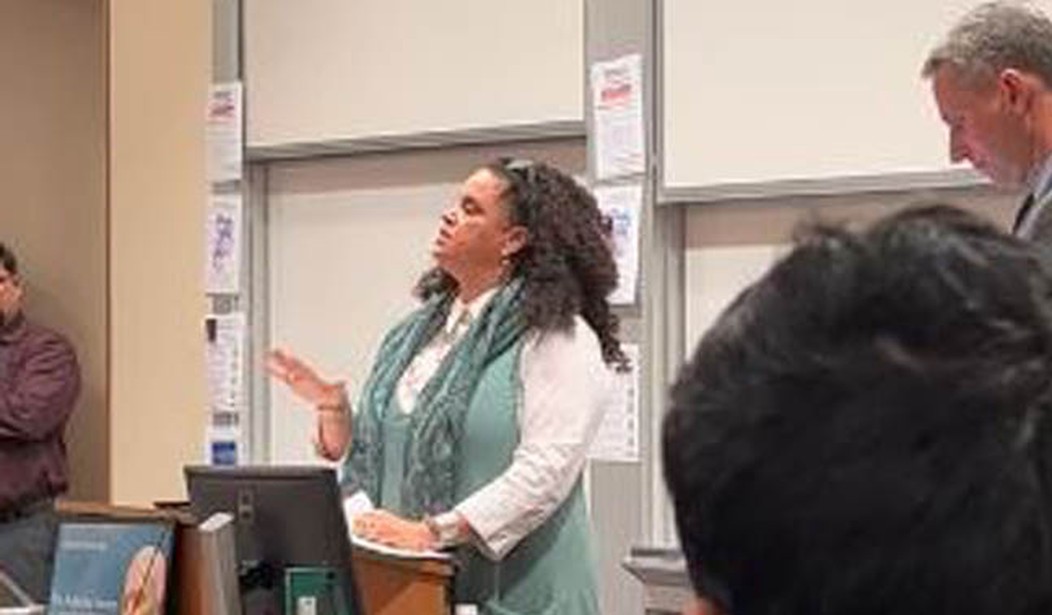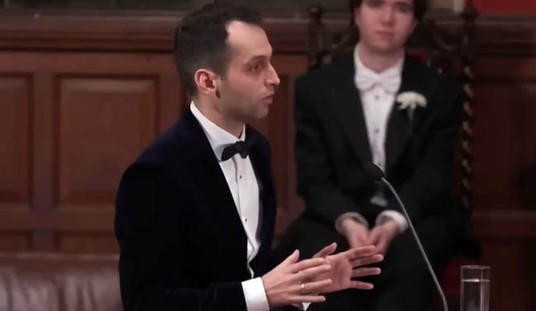“Is the juice worth the squeeze?”
John covered Tirien Steinbach’s response to critics in the Wall Street Journal very well last night, but I’d like to drill down on one part in particular. This question exposes Stanford’s DEI dean as a free-speech hypocrite, shows exactly how unrepentant she is, and why her continued presence at Stanford undermines everything that the university has claimed in its responses.
First off, the question is a tired cliché, not exactly the fruits of the intellectualism that Stanford claims as its standard. But in this case, it encapsulates Steinbach’s firm commitment that some speech should be censored, even if she suggests self-censorship as a first step:
At one point during the event, I asked Judge Duncan, “Is the juice worth the squeeze?” I was referring to the responsibility that comes with freedom of speech: to consider not only the benefit of our words but also the consequences. It isn’t a rhetorical question. I believe that we would be better served by leaders who ask themselves, “Is the juice (what we are doing) worth the squeeze (the intended and unintended consequences and costs)?” I will certainly continue to ask this question myself.
Er … what? What’s the juice, and what was the squeeze? Judge Kyle Duncan had been invited to a law school to discuss his view of jurisprudence — a rather mundane and almost routine type of event for such institutions. Duncan didn’t just show up on campus with a bullhorn and a soapbox, after all. Furthermore, Duncan had been invited to speak by the campus’ Federalist Society chapter, whose members certainly had an interest in Duncan’s viewpoint. For those members, Duncan’s point of view was neither juice nor squeeze — it was their desired experience, and Duncan graciously agreed to provide it.
This argument advanced by Steinbach maliciously undermines the very core of free speech. It asks speakers and the people who wish to hear them to consider not their own positions but whether anyone else around them feels differently — and if so, to shut up. This is what Steinbach calls “authentic free speech” in her WSJ essay
Notably, however, Steinbach doesn’t apply that principle to herself, nor to the fascist idiots and thugs led by the National Lawyers Guild that disrupted and shut down the event out of spite. In fact, she goes out of her way to imply that the Federalist Society and Duncan had it coming for not “listening” to the people insisting on discussing clitorises and whether Duncan can identify one:
What happened in that room is a microcosm of how polarized our society has become, and it raises important questions: How do we listen and talk to each other as people, not with partisan talking points? How might we start to hear the name-calling, anger, frustration and fury for what it is—people who are unhappy about the way things are and are looking for someone to be held accountable? Is there a way that we can stop blaming and start to talk and listen to each other?
Well, gee, maybe that’s a question that should be directed to the protesters. Did they bother to try listening to Duncan, or did they intend to shut down the conversation? And when Steinbach took the podium, did she admonish the students — or Duncan? After all, it wasn’t Duncan or the Federalist Society that rejected attempts to listen and converse. The protesters never intended to listen at all. In the end, Steinbach’s essay laments not that the mob shut down free speech, but that Duncan and the Federalist Society didn’t retreat while covering themselves in sackcloth and ashes.
And that’s what makes this a microcosm of Academia, and to some extent “society” at large. Authorities like Steinbach treat temper tantrums and worse as deep intellectual moments while telling those engaged in real intellectual discourse to consider whether they should just shut up instead. It demonstrates just how much the inmates have taken control of the asylum at Stanford and everywhere else as the mobs dictate and administrations indoctrinate rather than have anyone educate.
Jonathan Turley, who has followed this story from the beginning, agrees:
Avoiding “the squeeze” means being silent on points that have such consequences. Thus, to avoid angering these radical students, Duncan is expected to be silent on certain points or, in this case, any points that he might want to share. It is an invitation for self-censorship that would apply to any conservative jurist or speaker. While supporting free speech, Steinbach is condemning the exercise of speech when it could cause “pain” and “division.” Of course, such pain and division would not arise with a liberal jurist espousing the opposite viewpoints. Accordingly, liberal jurists would be free to speak without the sense of culpability while conservatives are expected to remain silent.
In the end, Steinbach did not “defuse” the situation but fueled the rage with her comments. To this day, she cannot understand why Duncan would persist in speaking when some take such great offense at his views. She asks “Is there a way that we can stop blaming and start to talk and listen to each other?” Yet, her answer appears to be for speakers like Duncan to recognize that their views are simply to hurtful for some and should not be voiced to avoid “the squeeze” of free speech.
The result is the type of doublespeak that is common on our campuses. Steinbach claims fealty to free speech while denouncing its exercise. She laments “how polarized our society has become,” but added to that polarization by expressing her own concerns over the “harm” that Duncan’s speech has brought for many at the school. She asked “how do we listen and talk to each other as people” while maintaining that, by stating his jurisprudential views, Duncan might not be worth the harm (or “squeeze”) to others.
“Free speech for we, not for thee” is not a principle. It’s a manipulation for totalitarians. If Stanford suffers Steinbach’s presence after this declaration, it will speak volumes about their institution, their principles, and the quality of their “education.” They had better decide — and quickly — whether Steinbach’s authoritarian juice is worth the squeeze … and maybe apply that calculation to the students who led this fascist exercise at their law school.
Update: My friend Adam Baldwin calls this an example of DARVO — “deny, attack, and reverse victim and offender.” It’s a strategy that abusers use to manipulate their victims and avoid accountability. It has some parallels to Alinksy’s tactics in Rules for Radicals, for that matter.









Join the conversation as a VIP Member